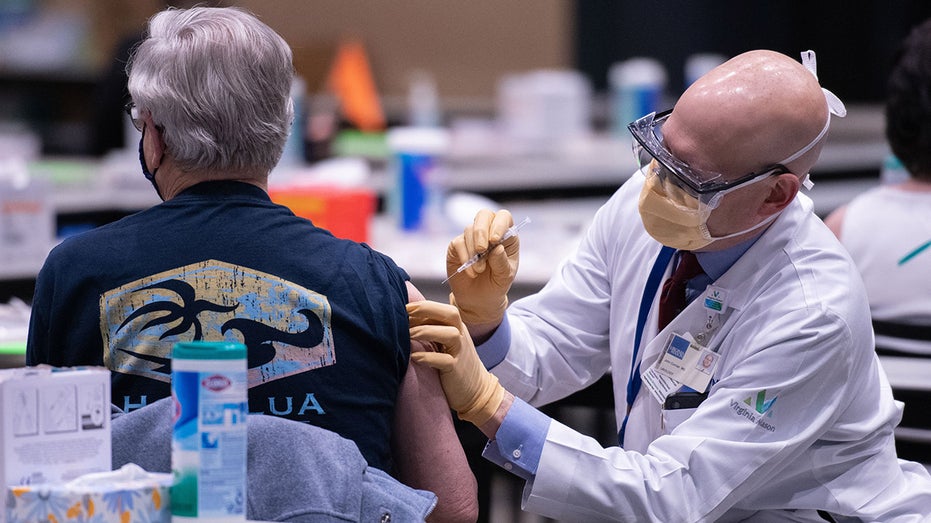Weak September jobs report due to COVID pandemic, US Labor Secretary Marty Walsh says
US economy added 194K jobs in September
US labor secretary blames delta variant on disappointing jobs report
Labor Secretary Marty Walsh acknowledges the September jobs report shows 'there is no question' that 'we still have work to do.'
Labor Secretary Marty Walsh blamed the COVID-19 pandemic on September’s disappointing jobs report, which was released on Friday, arguing the delta variant affected economic activity and, therefore, job growth.
Speaking on "Varney & Co." on Friday shortly after the release of the September jobs report, Walsh stressed that the U.S. is "still dealing with a pandemic" and the delta variant.
Walsh pointed to the hospitality numbers, saying about 74,000 jobs were gained in that sector, but acknowledged that the number "was expected to be much higher" and said there are "concerns around that."
"The number absolutely would have been higher if we weren’t dealing with the delta variant," he stressed.
"The number was under projected there because of people’s fear of going out to dinner and also people’s fear of working in restaurants and hospitality and tourism," he continued.
U.S. employers hired fewer workers than expected last month as supplemental unemployment benefits expired.
JOBS REPORT WILDLY MISSES EXPECTATIONS
Nonfarm payrolls increased by 194,000 workers in September as the unemployment rate fell to 4.8%, a pandemic low, the Labor Department said Friday. Economists surveyed by Refinitiv were expecting the addition of 500,000 new jobs and the unemployment rate to slip to 5.1%.
"We still have work to do. There is no question about it," Walsh said.
September jobs report significantly below analyst expectations
Fox Business' Edward Lawrence breaks down the September jobs report.
He did, however, point out that the unemployment rate dropped below 5%.
"It took us until 2016 to get to that number in the Great Recession so there are opportunities here that we have in front of us and we continue to move forward one step at a time," he said, stressing that "we are living in unprecedented times."
He also noted that countries around the world are "dealing with the same thing" as it pertains to "concerns in the job market" given the worldwide pandemic.
The September report was the first since the $300 per week in supplemental unemployment benefits expired on September 5. Economists are still assessing the impact of the Child Tax Credit, which pays families up to $3,600 per child per year. Also having an impact going forward will be the mandatory vaccine requirements being enforced by a growing number of companies.
Walsh said he believes many people "felt that the extended unemployment benefit was going to keep people out of the job market."
He then noted that he had said in past interviews that he "didn’t think that was the reason."
"I’m hoping that as we go forward in the next month we get more and more people into the job market," Walsh continued.
He also said that the U.S. "added nearly 5 million jobs since President Biden has taken office" and noted that "the vaccine mandates are working."
"The more people that get vaccinated, the more and more participation we see in the workplace so we just need to continue to move forward here," he continued.

The White House said millions of federal contractors must be vaccinated against COVID-19 by Dec. 8 and that the administration will add clauses to future government contracts mandating inoculations. (GRANT HINDSLEY/AFP via Getty Images / Getty Images)
The August jobs report also produced dismal numbers as U.S. hiring slowed sharply with the resurgence in new COVID-19 infections impeding job growth. On Friday, the jobs gains in August were revised up to 366,000 from 235,000. Last month, the Labor Department said the unemployment rate fell to 5.2% in August. Analysts surveyed by Refintiv had expected the addition of 728,000 jobs and the unemployment rate to fall to 5.2%.
GET FOX BUSINESS ON THE GO BY CLICKING HERE
As Walsh referenced on Friday, notable job gains in September occurred in leisure and hospitality (+74,000) and were led by the arts, entertainment, and recreation sector (+43,000). Hiring in food services and drinking places was little changed for a second straight month after averaging a monthly gain of 197,000 from January through July. Professional and business services (+60,000), retail trade (+56,000), and transportation and warehousing (+47,000) also saw sizable gains.
Both local government education (-144,000) and state government education (-17,000) lost jobs last month.
US labor secretary explains what led to disappointing jobs report
Labor Secretary Marty Walsh argues the dismal jobs report was due to the Delta variant, which affected economic activity and, therefore, job growth.
The number of workers reentering the labor force decreased by 198,000 last month to 2.3 million. The labor force participation rate was little changed at 61.6%, and was 1.7 percentage points below its February 2020 level. The rate has held between 61.4% and 61.7% since June 2020.
Average hourly earnings rose 0.6% in September and was up 4.6% year-over-year. Economists were expecting a 0.4% monthly increase and a 4.6% year-over-year gain.
CLICK HERE TO READ MORE ON FOX BUSINESS























